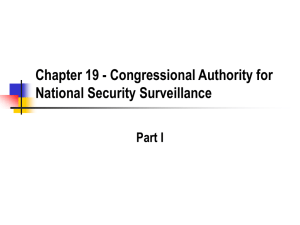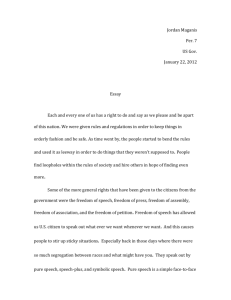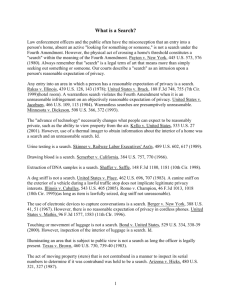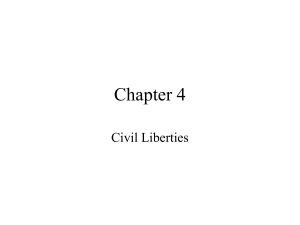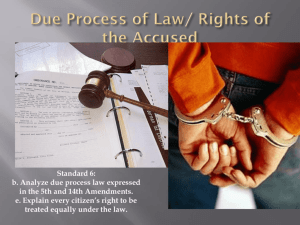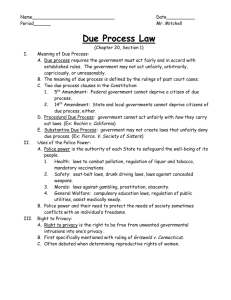1 Fourth Amend
advertisement
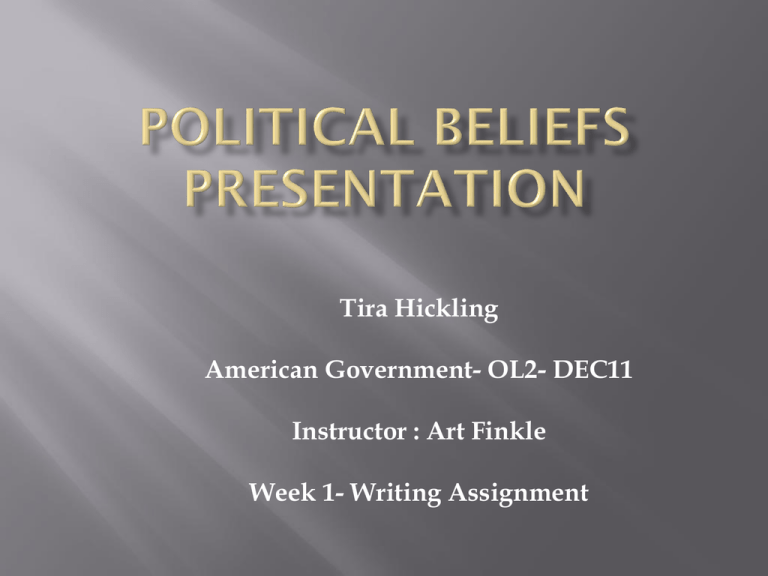
Tira Hickling American Government- OL2- DEC11 Instructor : Art Finkle Week 1- Writing Assignment 4Th Amendment: Protects Against Unreasonable Searches and Seizures This amendment means that the rights of the people are to be secure in their persons, houses, papers, and effects, against unreasonable searches and seizures, shall not be violated, and no warrants shall be issued, but upon probable cause, supported by oath or affirmation, and particularly describing the place to be searched, and the persons or things to be seized. Search and arrest should be limited in scope according to specific information supplied to issuing court, usually by a law enforcement officer, who has sworn by it. In the case of Mapp vs. Ohio, 367 U.S. 643 (1961), the Supreme Court ruled that the Fourth Amendment applies to the states by way of the Due Process Clause of the 14th Amendment. This clause means it prohibits state and local governments from depriving persons of life, liberty, or property without certain steps being taken to ensure fairness. In Katz vs. United States, 389 U.S 347 (1967), the Supreme Court ruled that the amendment's protections apply only when the searched party has a "reasonable expectation of privacy". The expectation of privacy is a legal test which is crucial in defining the scope of the applicability of the privacy protections of the 4th Amendment. It is related to, but is not the same thing as a right of privacy. Two types: A subjective expectation of privacy is an opinion of a person that a certain location or situation is private. These obviously vary greatly from person to person. An objective, legitimate or reasonable expectation of privacy is an expectation of privacy generally recognized by society. A person's residence or hotel room and public places which have been specifically provided by businesses or the public sector to ensure privacy, such as public restrooms, private portions of jailhouses or phone booths. In general, one cannot have a reasonable expectation of privacy regarding things open to the public. Example of non privacy rights : garbage left for collection in a public place, account records held by the bank, a person's physical characteristics (including blood, hair, fingerprints, fingernails and the sound of your voice), what the naked eye can see below in public air space (without the use of special equipment), anything in open fields (eg. barn), odors emanating from your car or luggage and paint scrapings on the outside of your car. The police have the power to search and seize, but individuals are protected against Arbitrary, unreasonable police intrusions. The safeguards enumerated by the 4th Amendment only apply against state action, namely action taken by a governmental official or at the direction of a governmental official. Bugging, wiretapping and other related snooping activity performed by purely private citizens, such as private investigators, do not receive 4th Amendment scrutiny The 4th amendment does NOT cover automobiles. There are instances where people are protected because of the Freedom from unrestricted search warrants. The Carroll Doctrine came into effect protecting the government from such instances. There are still exceptions to the rule: Probable Cause and Reasonable Suspicion, Arrest and Miranda, The Search Warrant Requirement, Exceptions to Warrant Requirement, The Exclusionary Rule and the Fruit of the Poisonous Tree Doctrine, The Knock and Announce Requirement and Search and Seizure at Public Schools . The essence of that protection is a prohibition against some modes of law enforcement because the cost of police intrusion into personal liberty is too high, even though the intrusion undoubtedly would result in an enormous boon to the public if the efficient apprehension of criminals were the sole criterion to be considered. 'The easiest course for law enforcement officials is not always one that our Constitution allows them to take.
